Society and regional strategies Reading time 5 min
Visit of the European Ministers of Agriculture and the European Commissioner for Agriculture
Published on 09 February 2022
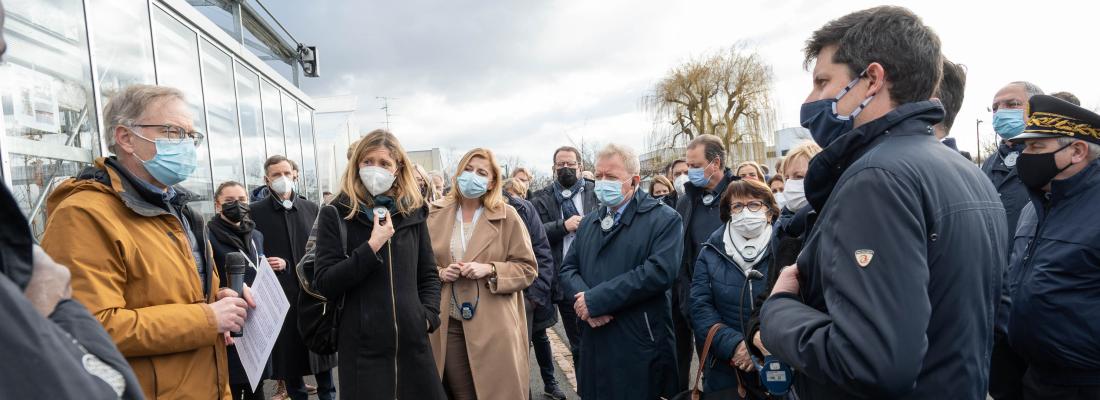
The 27 European Ministers of Agriculture and the European Commissioner for Agriculture visited the INRAE Grand-Est - Colmar centre in the company of Philippe Mauguin, Chair and CEO of INRAE, Serge Kauffmann, President of the Colmar Centre, and researchers and technicians who work on site.
The theme of the visit was the reduction of pesticide use in vineyards by producing disease-resistant vines. A presentation was given of the RESDUR programme, aimed at reducing the use of pesticides in vineyards thanks to the production of disease-resistant grape varieties. This programme is developed in partnership with the Institut français de la vigne et du vin (IFV) and in the framework of broad European cooperation.
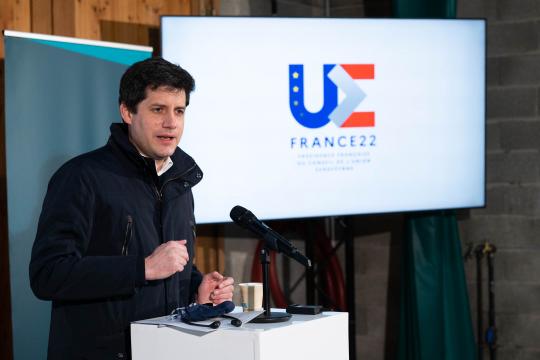
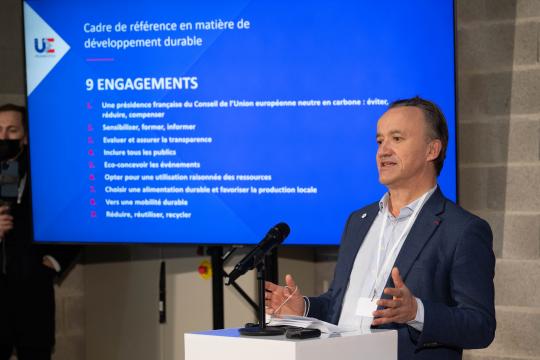
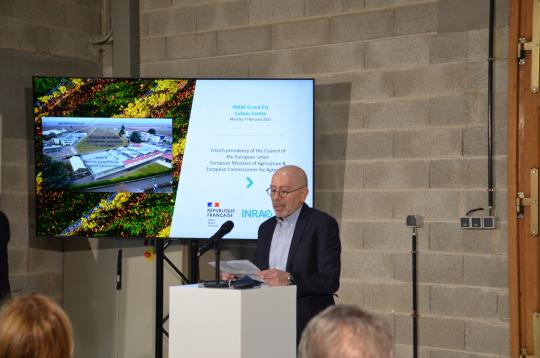
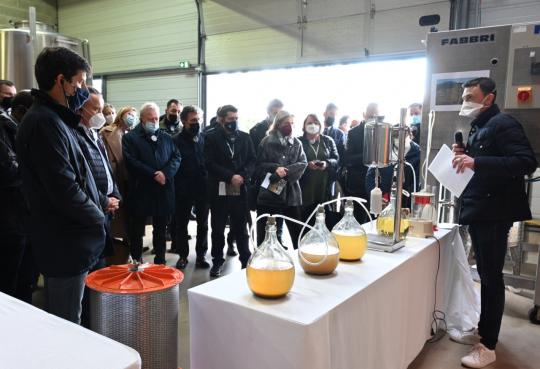
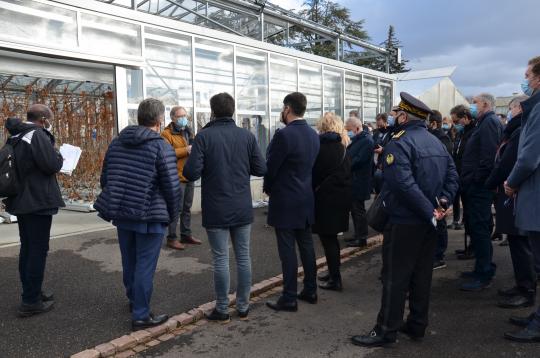
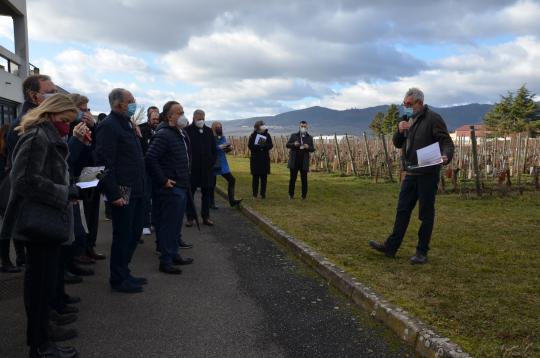
The RESDUR programme: over twenty years of research
INRA launched the RESDUR (Durable Resistance) programme in 2000, led by Didier Merdinoglu, INRAE Research Director. The objective of RESDUR is to develop a range of varieties that are durably resistant to downy and powdery mildew, two diseases that account for most phytosanitary treatments carried out in winegrowing. The programme is based on crossing wild American and Asian grapevines (Vitis sp.) that possess resistance factors with European varieties (Vitis vinifera). To reduce the risk of resistance breakdown, each RESDUR variety carries at least two genes resistant to each of the two fungi that cause downy and powdery mildew.
This singular approach is based on a three-step selection process:
1/ early selection using MAS (marker assisted selection = PCR screening)
2/ intermediate selection based on a network of testing at INRAE experimental units
3/ final selection to assess the agronomic, technological and environmental value in collaboration with the IFV. The entire process takes 15 years.
Registration of 4 new resistant varieties
In 2018, RESDUR registered in the French catalogue the Artaban, Floreal, Vidoc and Voltis varieties, which are highly resistant to downy and powdery mildew. Artaban and Vidoc are co-owned with the Julius Kuhn Institute in Siebeldingen, Germany, an important partner, especially during the launch of the programme.
Result: over 90% reduction in phytosanitary treatments for these four varieties
Thanks to OSCAR, an observatory for the implementation of resistant grape varieties created in 2017, that tangible proof of this reduction in fungicides has been validated. OSCAR covers over 30 sites across France and involves chambers of agriculture, the IFV, agricultural high schools and winegrowing groups. The INRAE Centre in Colmar is host to one of the programme’s sites.
Now that this proof of concept is completed, researchers at the Colmar site, together with the IFV, are now making their expertise available to wine professionals for the development of new varieties with regional characteristics using emblematic grape varieties specific to each region, such as Cabernet Sauvignon, Gewurztraminer or Chardonnay.
